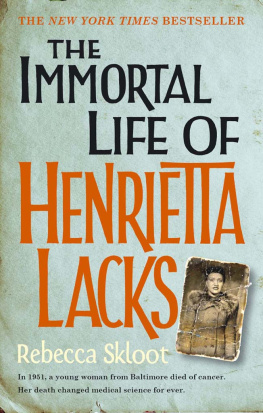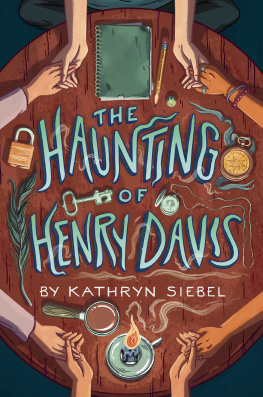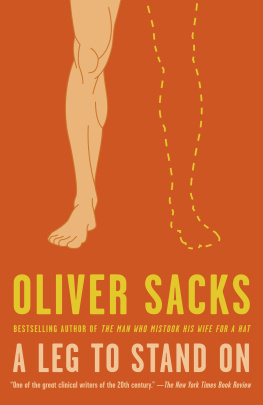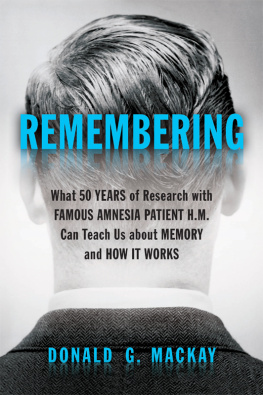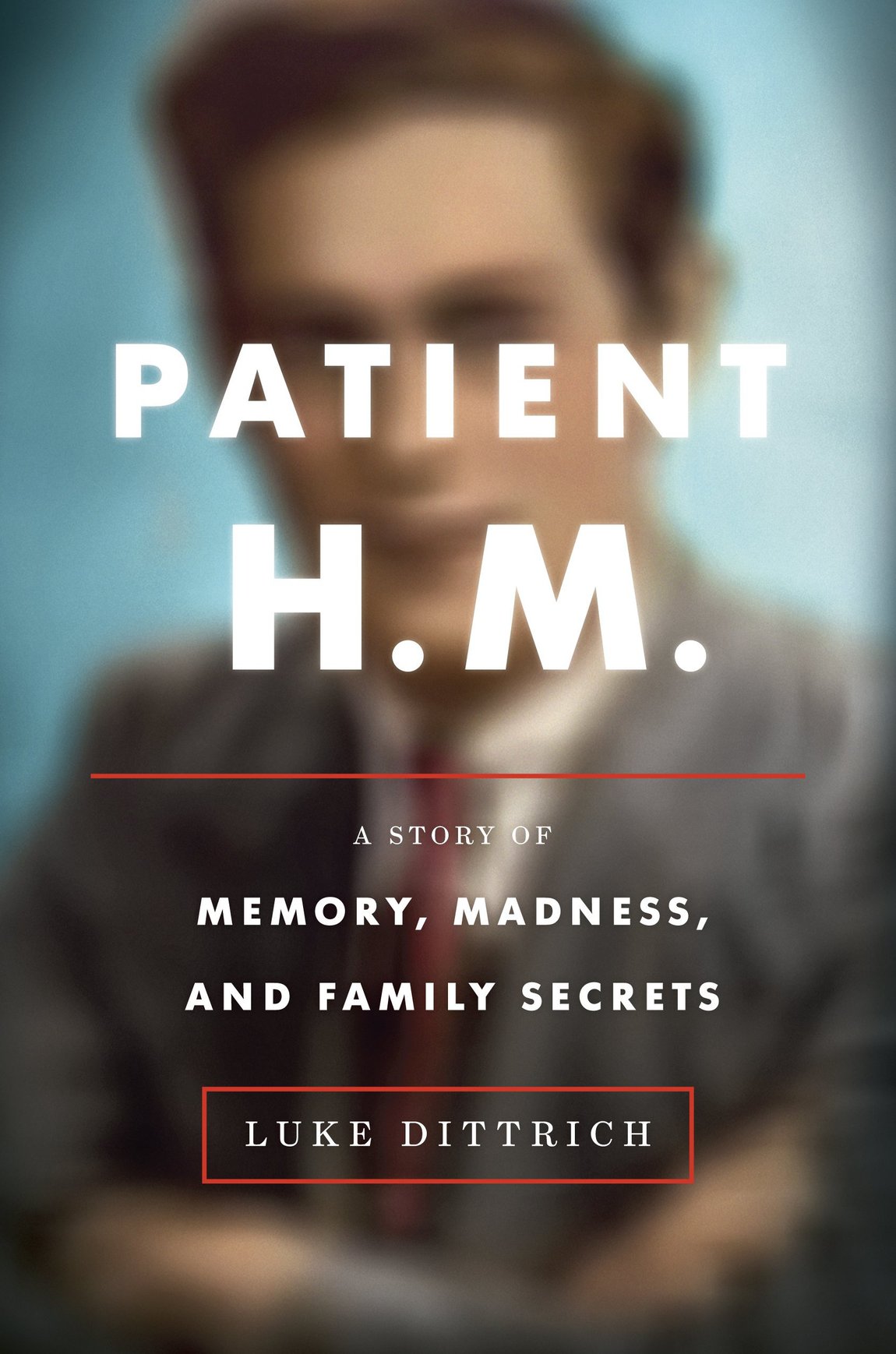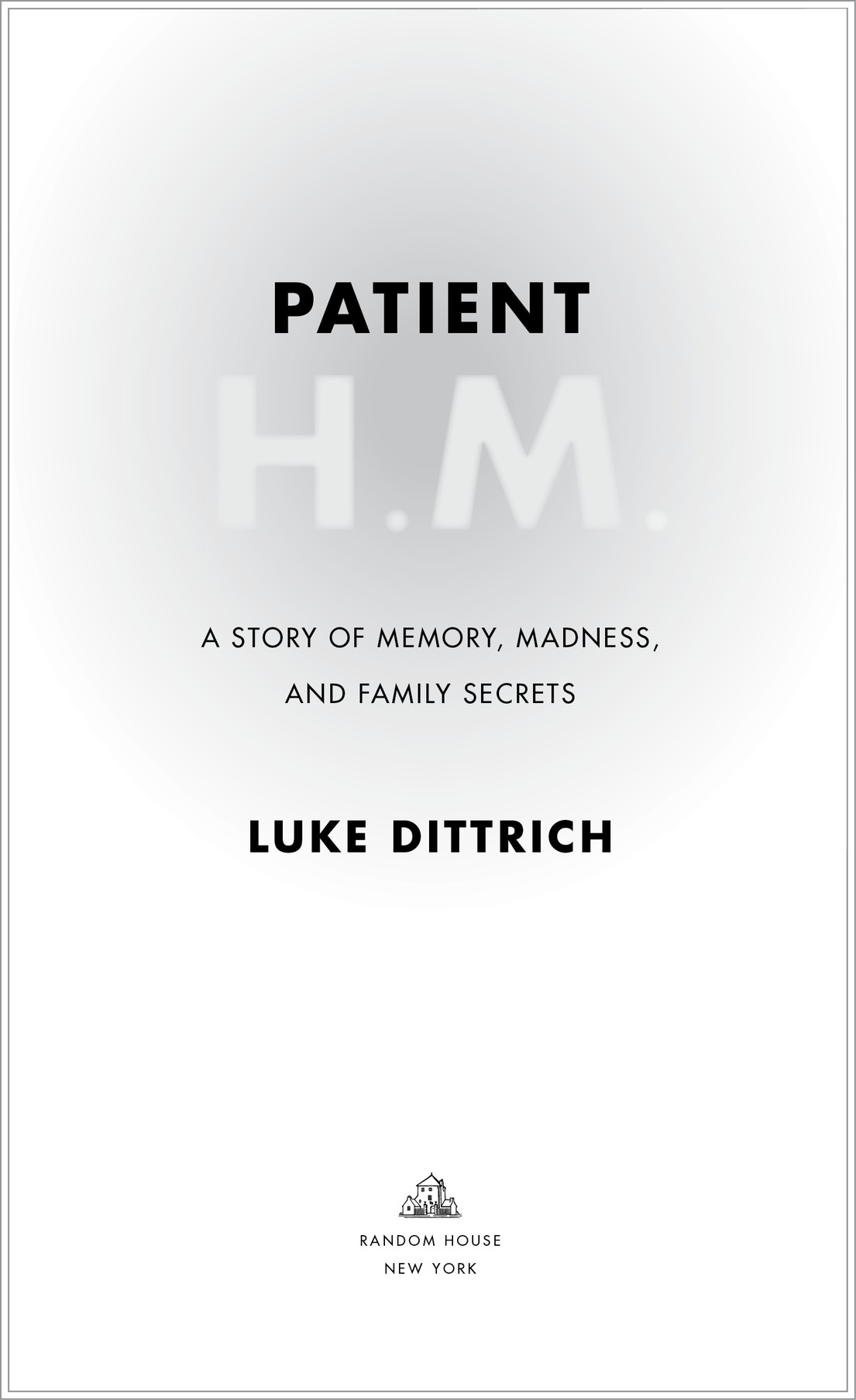Luke Dittrich - Patient H.M.: A Story of Memory, Madness, and Family Secrets
Here you can read online Luke Dittrich - Patient H.M.: A Story of Memory, Madness, and Family Secrets full text of the book (entire story) in english for free. Download pdf and epub, get meaning, cover and reviews about this ebook. year: 2016, publisher: Random House, genre: Detective and thriller. Description of the work, (preface) as well as reviews are available. Best literature library LitArk.com created for fans of good reading and offers a wide selection of genres:
Romance novel
Science fiction
Adventure
Detective
Science
History
Home and family
Prose
Art
Politics
Computer
Non-fiction
Religion
Business
Children
Humor
Choose a favorite category and find really read worthwhile books. Enjoy immersion in the world of imagination, feel the emotions of the characters or learn something new for yourself, make an fascinating discovery.

- Book:Patient H.M.: A Story of Memory, Madness, and Family Secrets
- Author:
- Publisher:Random House
- Genre:
- Year:2016
- Rating:4 / 5
- Favourites:Add to favourites
- Your mark:
Patient H.M.: A Story of Memory, Madness, and Family Secrets: summary, description and annotation
We offer to read an annotation, description, summary or preface (depends on what the author of the book "Patient H.M.: A Story of Memory, Madness, and Family Secrets" wrote himself). If you haven't found the necessary information about the book — write in the comments, we will try to find it.
*Kirkus Reviews (starred review)
In 1953, a twenty-seven-year-old factory worker named Henry Molaisonwho suffered from severe epilepsyreceived a radical new version of the then-common lobotomy, targeting the most mysterious structures in the brain. The operation failed to eliminate Henrys seizures, but it did have an unintended effect: Henry was left profoundly amnesic, unable to create long-term memories. Over the next sixty years, Patient H.M., as Henry was known, became the most studied individual in the history of neuroscience, a human guinea pig who would teach us much of what we know about memory today.
Patient H.M. is, at times, a deeply personal journey. Dittrichs grandfather was the brilliant, morally complex surgeon who operated on Molaisonand thousands of other patients. The authors investigation into the dark roots of modern memory science ultimately forces him to confront unsettling secrets in his own family history, and to reveal the tragedy that fueled his grandfathers relentless experimentationexperimentation that would revolutionize our understanding of ourselves.
Dittrich uses the case of Patient H.M. as a starting point for a kaleidoscopic journey, one that moves from the first recorded brain surgeries in ancient Egypt to the cutting-edge laboratories of MIT. He takes readers inside the old asylums and operating theaters where psychosurgeons, as they called themselves, conducted their human experiments, and behind the scenes of a bitter custody battle over the ownership of the most important brain in the world.
Patient H.M. combines the best of biography, memoir, and science journalism to create a haunting, endlessly fascinating story, one that reveals the wondrous and devastating things that can happen when hubris, ambition, and human imperfection collide.
Praise for Patient H.M.
Patient H.M. tells one of the most fascinating and disturbing stories in the annals of medicine, weaving in ethics, philosophy, a personal saga, the history of neurosurgery, the mysteries of human memory, and an exploration of human ego.Sheri Fink, M.D., Pulitzer Prize winner and author of Five Days at Memorial
Dittrich explores the limits of science and the mind. In the process, he rescues an iconic life from oblivion. Dittrich is well aware that while we are the sum of what we may remember, were also at the mercy of what we can forget. This is classic reporting and myth-making at the same time.Colum McCann, author of Let the Great World Spin
This book succeeds on every level: as a fresh look at the most famous patient in medical history, as an expos of our dark history of psychiatry and neurosurgery, and, most powerfully, as a deeply personal investigation into the authors past. And yet its still a page-turner that reads like a thriller.Susannah Cahalan, author of Brain on Fire
It felt as if I read this book in one breath. Patient H.M. is a fascinating, powerful investigation, a matryoshka doll of nested stories about the past and present, remembering and forgetting.Michael Paterniti, author of The Telling Room
Luke Dittrich: author's other books
Who wrote Patient H.M.: A Story of Memory, Madness, and Family Secrets? Find out the surname, the name of the author of the book and a list of all author's works by series.

